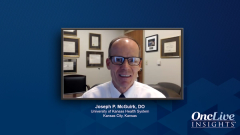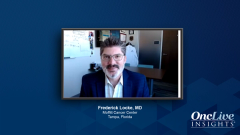
Challenges in CAR T-Cell Therapy for Lymphoma
Delve into the challenges of CAR T-cell therapy access and explore the biology behind treatment responses and relapses in lymphoma patients.
Episodes in this series

Video synopsis is AI-generated and reviewed by OncLive editorial staff.
CAR T-cell therapy, a promising treatment for lymphoma patients, faces significant challenges in terms of access and treatment responses. A key issue is the eligibility gap; while approximately 25,000 patients in the United States receive a diagnosis of diffuse large B-cell lymphoma (DBCL) annually, a substantial disparity exists between the number of eligible patients and those who actually receive CAR T-cell therapy.
About 60% of patients with de novo DLBCL can be cured with conventional therapies, leaving approximately 8000 patients. However, not all of them can access CAR T-cell therapy due to various factors, including insurance coverage, racial and ethnic disparities, and socioeconomic disadvantages. These disparities highlight the need to address health care access issues, ensuring that CAR T-cell therapy is available to all eligible patients. Excluding patients with access barriers, an estimated 6500 patients should be eligible for CAR T-cell therapy. Contrary to the belief that advanced age or comorbidities might preclude eligibility, research shows otherwise. In a study of real-world data, patients with comorbidities and advanced age who wouldn't have qualified for clinical trials achieved outcomes comparable to those enrolled in trials.
However, despite the potential for broad eligibility, the majority of patients with DLBCL do not receive CAR T-cell therapy, with access rates plateauing at approximately 30%. This access issue remains a significant concern in the field. Furthermore, the biology behind treatment responses and relapses poses another challenge. One of the drivers of relapse post–CAR T-cell therapy is antigen escape, where cancer cells reduce or alter the expression of CD19, the target antigen for CAR T cells . This alteration makes it challenging for CAR T cells to recognize and eliminate these cancer cells effectively. To address this issue, some centers are exploring CAR T-cell therapy strategies that target multiple antigens simultaneously, such as CD19, CD20, and CD22. This approach increases the chances of success by ensuring that if one antigen is not expressed or is altered, the CAR T cells can recognize and attack the cancer cells.
Another complication arises from the existence of alternative pathways for T cell–mediated cancer cell killing, including the FAS ligand pathway. Loss of key receptors or ligands in this pathway can hinder the effectiveness of CAR T-cell therapy. In conclusion, CAR T-cell therapy offers great potential in lymphoma treatment, but significant challenges persist in access and addressing treatment response and relapse. Overcoming health care disparities and increasing access to CAR T-cell therapy for eligible patients is essential. Additionally, ongoing research into CAR T-cell therapy strategies that target multiple antigens and address alternative pathways of cell killing holds promise for improving treatment outcomes and reducing relapse rates in patients with lymphoma.






































